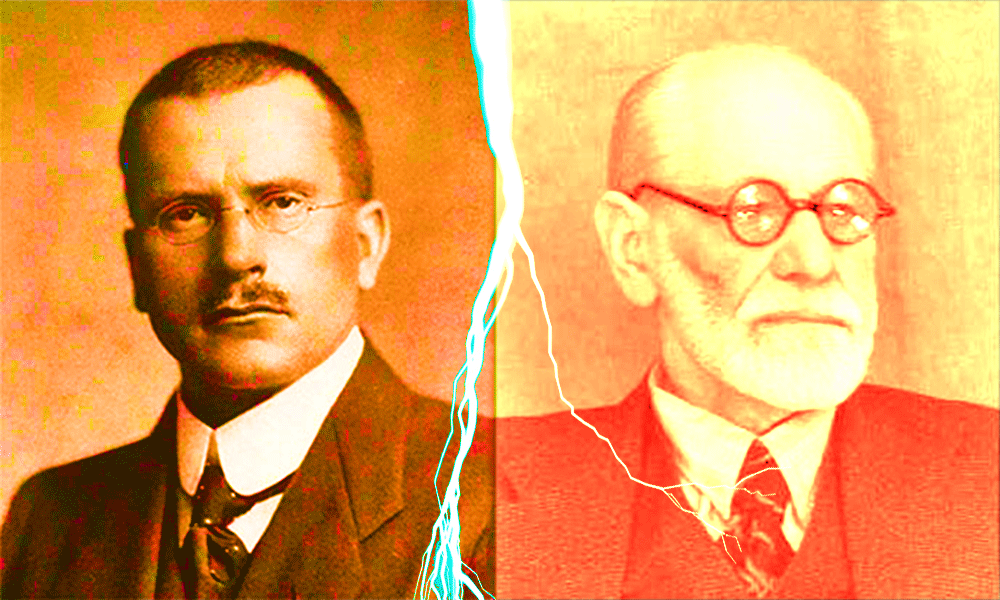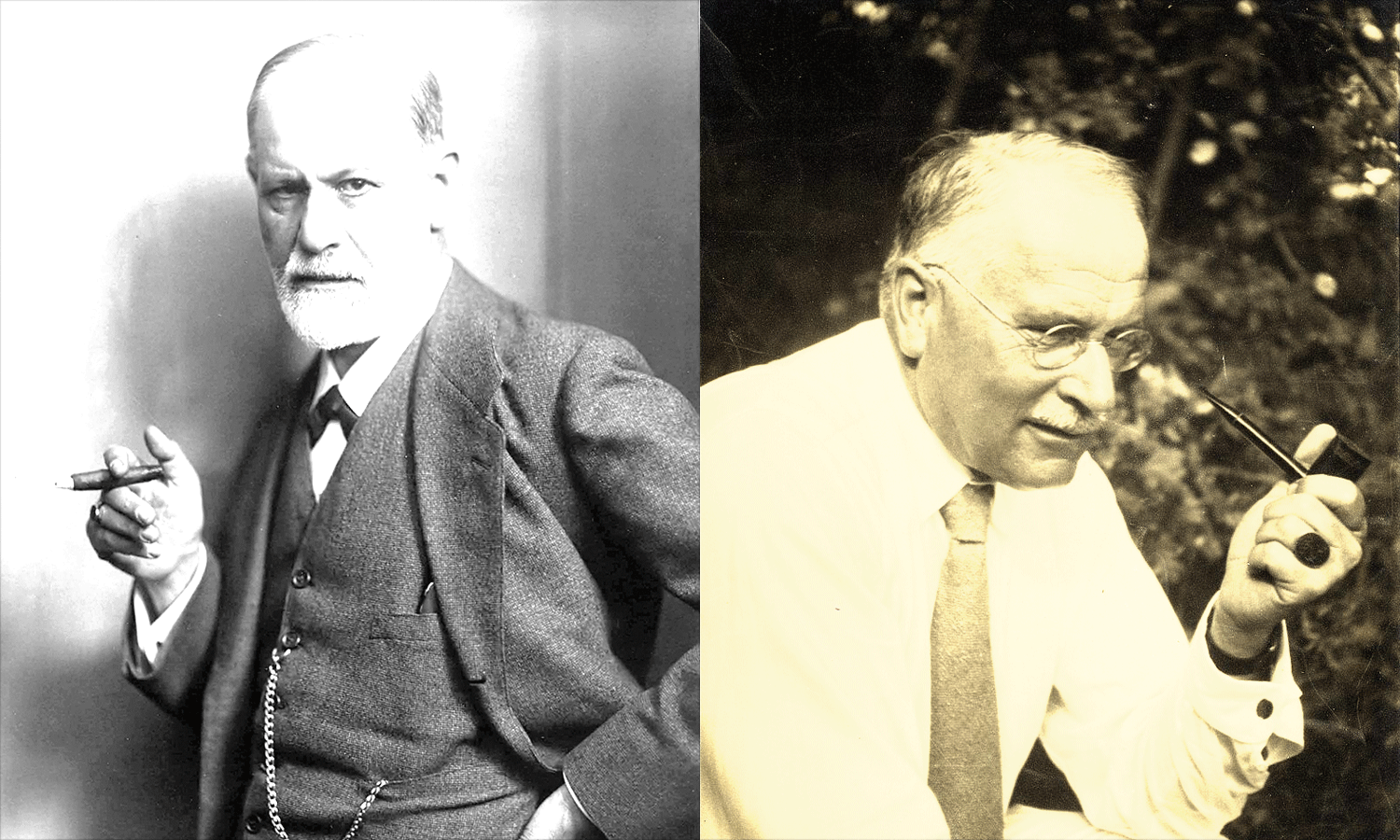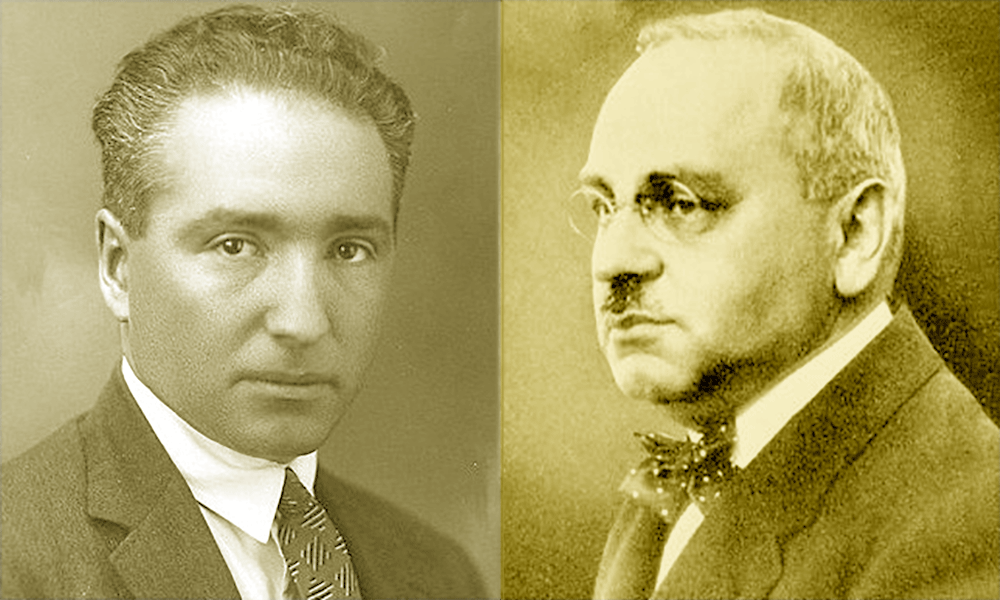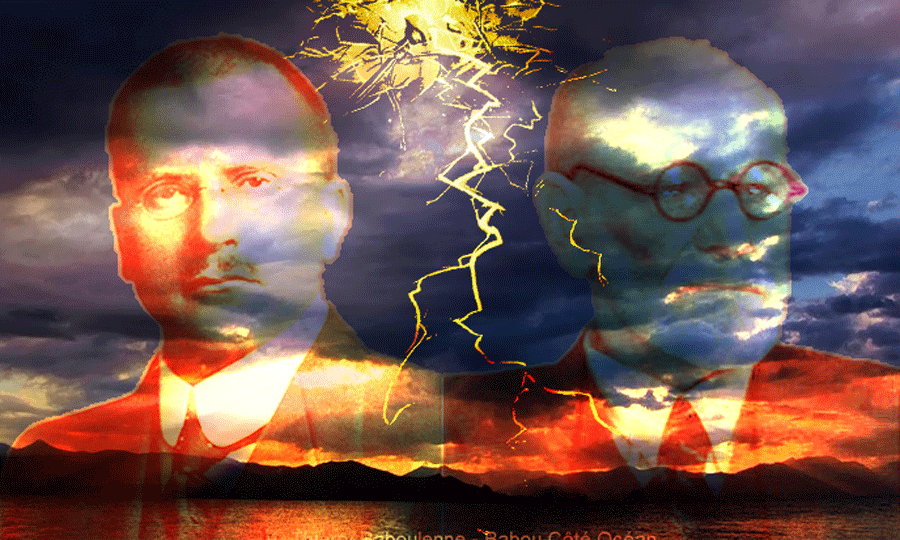
Psychoanalysis is an exciting, if not fundamental, subject. More than ever, it is important not to leave to the cancerous followers of neo-Frudism. These disciples of the Lacan clown have been working for half a century to liquidate one after the other those who do not think like them. They occupy so much of the psychoanalytic scene that no practitioner — or almost — dares to invoke other conceptions. Yet they exist and deserve to be known.
Master Jung
To every lord, all honor. My inclination will always be towards the most modern of them, Freud’s first disciple before becoming his main opponent. A Swiss doctor, psychiatrist, psychologist and essayist, Carl Gustav Jung was born on 26 July 1875 in Kesswil, canton Thurgau, and died on 6 June 1961 in Küsnacht, canton Zurich, in German-speaking Switzerland.
Jung is a resolutely modern thinker. His open-mindedness and multidisciplinary approach have shaped the Western unconscious in an underground but sustainable way. Putting alchemical and shamanic traditions into perspective with modern medical science is a whole new approach to the human phenomenon.
With Nietzsche, Jung has fostered the nagualist trend followed by Carlos Castaneda.
“Jung is the author of many books of psychology and social psychology in German translated into many other languages. He is the founder of the current analytical psychology. His work was first linked to psychoanalysis, Sigmund Freud, of which he was one of the first employees, of which he separated later for personal reasons, and due to theoretical differences.” (source)Wikipedia
Old Man Freud
I daresay that Old Man Freud is boring with his sexual obsessions and his omnipresent Oedipus complex. It seems that the Freudian theory first learned about the psychoses and neuroses of Freud himself. They are not mine.
Rebecca Coffey new novel “Hysterical: Anna Freud’s Story” was originally planned as a biography. It shows Sigmund Freud trying to analyze away his daughter’s lesbianism.
“In real life, Anna Freud lived for more than 50 years with partner (and Tiffany heiress) Dorothy Burlingham, says Coffey. Her father “thought lesbianism to be a highway to emotional collapse that is always the fault of the father, and is always curable by psychoanalysis.” He spent many hours analyzing his daughter (a taboo in psychiatric circles).
In attempting to research a biography of Anna Freud, Coffey discovered that Anna’s diaries and papers, which might have provided more information about her sexuality, were “held at bay” by the Sigmund Freud Archives, which she describes as a “cadre of psychoanalysts who had strong personal loyalties” to Papa Freud. Upon finding that most of the written records of the life of Anna Freud, eventually an important figure in her own right for founding the field of child psychoanalysis, were unavailable to her, she thought, “Well, screw you, Freud Archives. I’ll fill in the blanks myself.” This is how the biography came to be a novel. Moving but gloomy.

Adler and Reich
“Would you mind if I opened the window a little? A little fresh air will do us so much good!” (source) Hergé, The Mysterious Star, page 26
Fresh air, in this field of psychology of the depths, was brought by Jung, it is true, but also by two other almost forgotten theorists, Adler and Reich.
After studying medicine, Wilhelm Reich (1897-1957) became the pupil of Sigmund Freud and worked alongside him on psychoanalysis. In the field of sexuality, he is particularly interested in the role of orgasm and develops a flamboyant theory of orgone that my benefactor tried to put into practice at the end of the last century in the Rochefort area. Reich then tries to combine Marx and Freud in a very elaborate attempt to articulate Marxism and psychoanalysis. In his study Dialectical Materialism and Psychoanalysis, he believes he can combine the two dominant thoughts, which still hold up today.
Alfred Adler (1870-1937), an Austrian doctor and psychotherapist, is the founder of individual psychology. Adler wanted to create a psychology close to real life, which would allow everyone to understand others according to their biographies. The works he published from 1920 on, in a style voluntarily stripped, as well as his lectures, were to make his psychology accessible to all and make it a common good. The individual as Adler sees it is not controlled by his instincts: he is of a free nature and must solve the cultural tasks that life subjects him to. Far away from Freudian conditioning, Adler openly opposed it and ended up, in 1911, with his break with Freud and his Psychoanalytical society of Vienna
The modernity of Jung
In public as in his private life, Freud is a patriarch who reigns by terror. Far from any perverse rigorism, Jung appears infinitely healthier. His life, Jung digs a vein that speaks to the soul. He worked much on his relationship to the soul although he uses the word little. One must look for the soul in his intimate writings, like his Red Book, which is more than a bedtime book: a must-see wonder.
Soul. Jung was rightly wary of this suitcase word, distorted by Protestantism and Catholicism, and misunderstood by modern thought. Also, rather than soul, Jung prefers to speak of psyche. He thus avoids the untimely closures with the souls of believers, Christians or others. The psyche is the secular soul. We can talk about it without risking fatwa or blacklisting.

Neofreudians
This great freedom of spirit has earned him the mistrust of a soft gang, that of neo-Frudians. While Jung fell into oblivion, they praise to the skies the worst of Freudian thought, making psychoanalysis a dangerous minefield.
There are probably sincere and competent practitioners. Anything is possible. We have seen honest ministers. But the neo-freudian psychoanalysis having killed two of my friends, it will be understood that I have Freud in the nose. If I prefer Jung to him and many, I also adore the exuberant Wilhelm Reich, who would deserve to be called the Great Reich – if the name were not squatted by idiots. The stupid Nazillons screw up everything they own: the West, Joan of Arc, the vril, the pyramids, the swastika or swastika, Thule, everything is good for these bad. They don’t understand it, but their dirty legs pollute. These frustrated people didn’t invent anything, plundered everything. The multiverse is ashamed for them. And for those who imitate them.
More wrongly than rightly, Jung is criticized for his ambiguous relations with Nazism. Ambiguous? Not for me. He pretended to appreciate them to serve other purposes, much less favorable to the filthy regime. As Wikipedia testifies, Carl Gustav Jung was a secret agent for the Allies. (source) So obviously, in order to gather information, he had to approach certain Nazi personalities. Which doesn’t make him a Nazi, quite the contrary.
Prophet Jung
The influence of his thought is considerable, and in my opinion, his fame has not yet reached its peak. Jung was indeed one of the very first philosophers of the 20th century. His fans are not only among psychoanalysts or other intellectuals: many artists claim to belong to the great family he founded, metaphsychology.
“A founding father of a psychology of cultures, he has brought together generations of therapists, analysts and artists around his work. Prolific author, he mixes metaphsychological and practical reflections about the analytical cure. Jung has devoted his life to clinical practice and the development of psychological theories, but has also explored other fields of humanities: from comparative study of religions, philosophy and sociology to criticism of art and literature. We owe him the concepts of “archetype”, “collective unconscious” and “synchronicity” (source)Wikipedia
Each of these fundamental concepts deserves a whole article that I will write one day. His ideas have all made a good career, and the truth seekers who use them most often ignore the author. I wanted this injustice to be remedied here. Pass it on, my dear friends. Joy will bring it back to you.



